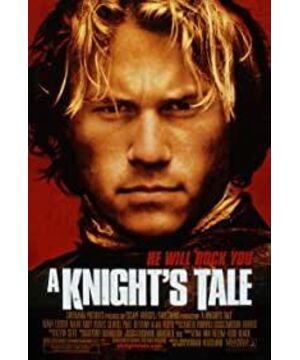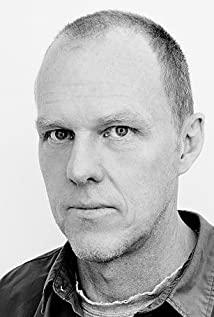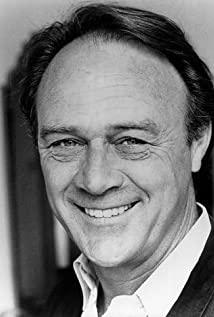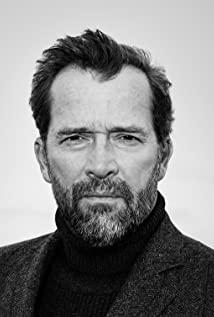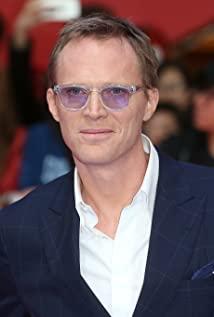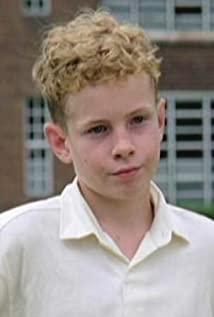Just yesterday it looked central six sets of Tasly Jiapianyouyue, title called Knight legend.
Hear the name to know a general idea. Medieval, knight, beauty, love, honor, etc., but this film is somewhat interesting, the theme is very simple, that is, the process of a commoner's son trying to change his destiny. Of course, it was successful in the end. Hollywood does not believe in tears, it only expects to sell miracles for money. If it is a failure in the end, it is estimated that the box office will also be a failure. Compared with us, foreigners are more practical and believe in strength more.
To that end, the story concocts a virtual sport: throwing guns right away. I'm not saying this movement is virtual, in fact we often see similar scenes in medieval knight films: two knights in helmets and breastplates, lances in each other's hands, rushing towards each other on horseback, When approaching, wait for the opportunity to give the opponent a hard blow. This fiction refers to the schedule and setting of the environment. The film fictitious tours, championships, etc., and assumes that the winner can get money, honor, the love of the audience, and the love of beautiful women. There is a precondition for all this. The contestants must be nobles. If a commoner is found to be impersonating the contest, he will be hanged. With all this foreshadowing, the story begins logically.
William Thatcher, (the name is worth noting because, as mentioned later, the Thatcher is the ancestor of Margaret Thatcher's family who was once in the political arena), was the son of a poor mason. One day, when he was still a child, he watched the performance of the knights and the scene where they were surrounded and cheered, and he was very eager to become such a person one day. This scene is not unfamiliar. There are too many in Chinese history. For example, Chen Sheng and Wu Guang's "A prince and a general, I would rather have a seed", or, for example, when Liu Bang saw Qin Shi Huang's majesty when he traveled, the envy of the "big man" Shouldn’t that be the case?” If this is Chinese history, if it was written by an ancient person, it might be: Sa Shi, Tabu William, few ambitions... Wait, etc., anyway, there is one sentence: This kid has a seed.
So William's father decided to help his aspiring son realize his ideals and handed him over to a knight as a squire. Here are two dialogues, which can be regarded as the main theme of the film:
William: Can I change my destiny?
Father: You can, you can do it.
William: But what if I don't recognize the way back?
Father: Follow the footprints, boy, and it will take you home.
It's simple, but it's also the subject of the story. The only way to change your destiny is to go out boldly, but no matter how far you go, you must remember the way home in your heart. These two sentences, in fact, say a cycle.
Then came the dramatic scene: the knight dies suddenly in the game, William impersonates, and wins the game. This victory made him feel that the opportunity to change his destiny had come, so he went out to fight in the name of a knight and won countless honors, until a certain time, he returned to the town where he was born to compete, and unexpectedly found that his father was still alive. , just blinded. The scene where father and son meet is the most emotional place in the film - he finally followed the footsteps of his soul and found his way home.
The result of the meeting led to a disaster. His opponent and rival (comparatively conventional plots, usually arranged in this way, there is no love for no reason, and naturally there is no hate for no reason. If you want to give the protagonist a mortal enemy) , a rival in love is a good reason) discovering his true identity, he notified the Royal Guard and came to arrest him. The best scene is here: when all his friends persuade him to run away, and the girl he loves tells him that he is willing to run away with him, he stubbornly refuses to leave, because, "I am a knight, I want to cherish my honor." When I watched this episode, I suddenly remembered a sketch played by Chen Peisi a long time ago: Policeman and Thief. When the thief got used to his role as a police officer, he even arrested his own companion. In a word: the drama is too deep. This is of course a joke, and in a more serious way, it is that although he is pretending, in his heart, he has completely regarded himself as a real knight.
The ending was unsurprisingly happy. When his identity was revealed and he was displayed on a high platform, everyone spat at him and threw tomatoes at him, a mysterious knight he had rescued stood up, and it turned out to be the son of the king. The prince said that he had sent someone to check Thatcher's family tree, and it turned out that he was the bloodline of the ancient emperor and was a real nobleman. Next, of course, is the battle of revenge. William, who has obtained the status of a knight and has truly changed his class and destiny, under the watchful eyes of his lover, father, and friends, in the crowd and cheers of the audience, put that damn rival in love. And the opponent is defeated, and the end is successful.
Stories are always just stories. The real Middle Ages are called the darkest years in history, the creepy inquisitions, the hierarchies that are too hard to break, these are all understated in the film, which is natural, the director will say, we are after all. Not making a historical film. And how many people are willing to see and know the real history? There are a lot of almost absurd things in the film that allude to this, such as composing the theme song with the famous rock music "we will rock you", such as the street dance in the stately palace hall, such as the latest news in the arena. The wave of people...and a little bloody, the film has inserted many real historical figures. For example, among William's friends, there is a poet named Geoffrey Chaucer, who is actually Joe who wrote "Canterbury Tales" old man. False and real, true and false, create virtual characters in real history.
If possible, I would prefer to see it as a sports film. The spirit of advocating competition, especially the spirit of fairness and equality, it promotes is exactly the same as the purification effect of sports on the human soul. There are many things in the world that are unfair, but we have competitions and seemingly fair rules, they make us feel that everything can be changed by our own efforts, all man are created equal, you, me, him, People who grew up in different classes and different environments will one day stand in the same arena and compete in the fairest and freest competition under the same undifferentiated rules.
If life is really just a simple competition, it would be great.
ps The director of the play has won the Oscar for Best Screenplay, but this is the first time I have been a director. The male and female protagonists in the film are also unknown. On the Internet, I found that the actor is called Heath Legere, Australian. Perhaps it is the relationship between the regions, and there is a kind of simplicity in the sun; the heroine is Rufus Sewell, who seems to be of African descent, but combines the elegance of the East, which is quite exotic. Just these two can add a lot of color.
View more about A Knight's Tale reviews


